099 #opendatach
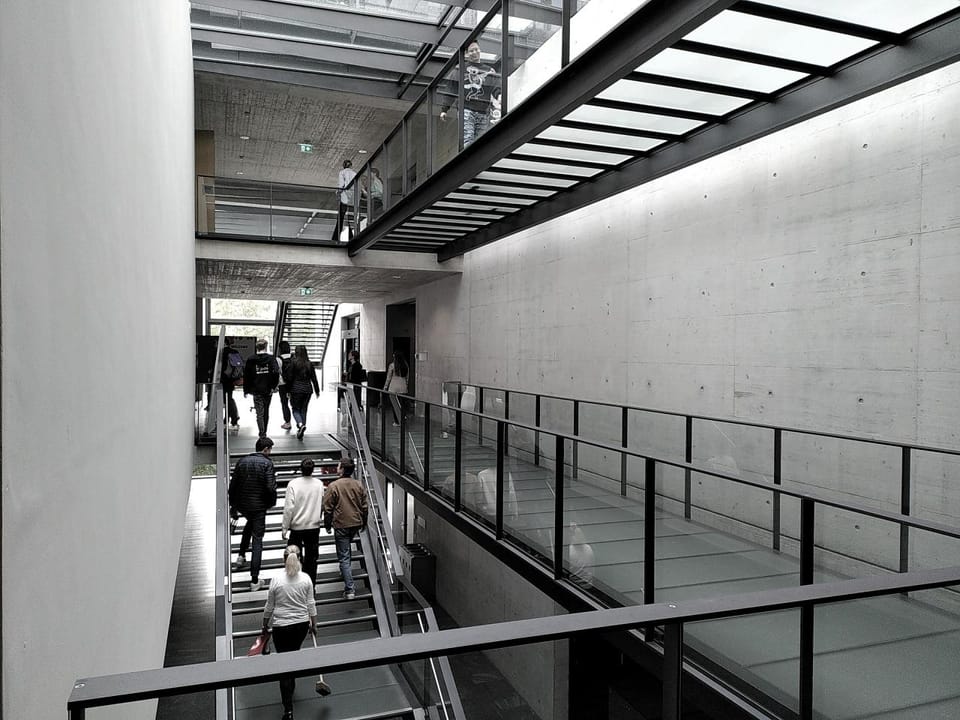
Report on this year's Opendata.ch/2024, the 14th annual conference of the Swiss Open Knowledge chapter. Representing the nation's open data community, there were stakeholders participating from a wide range of institutions.
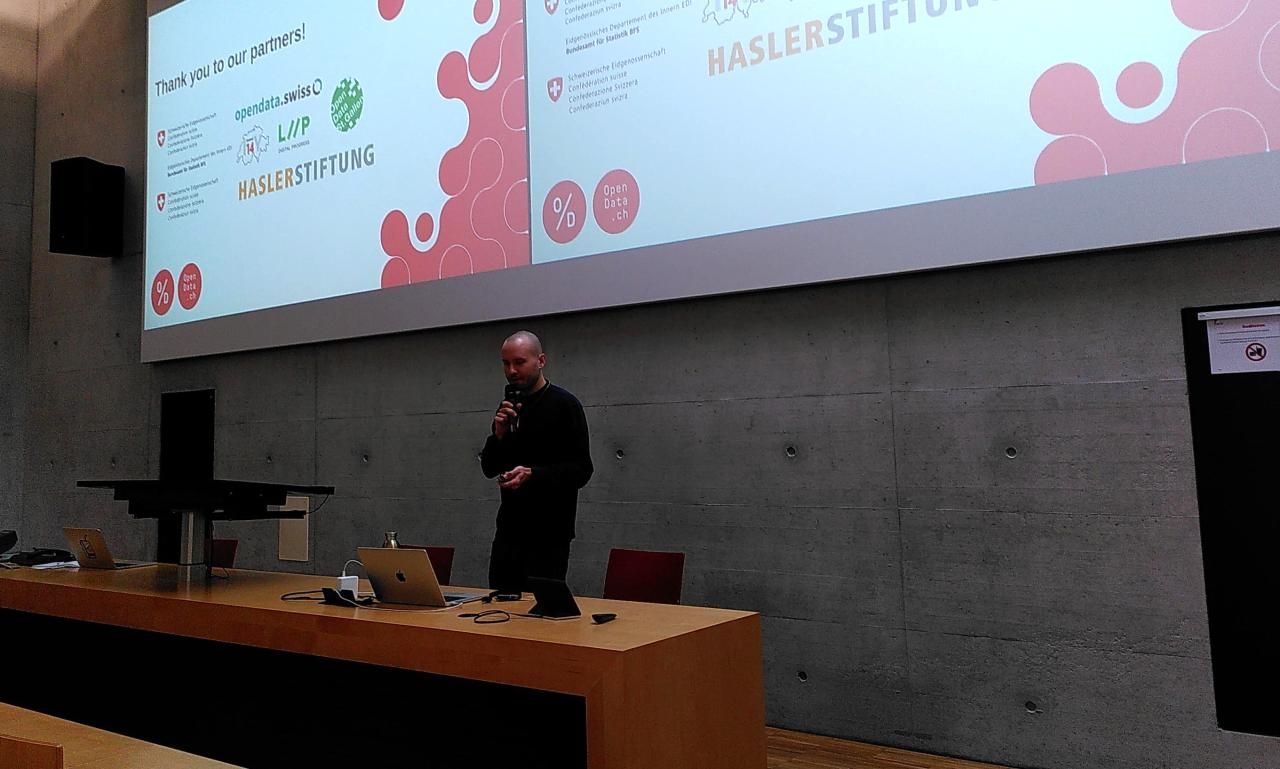
As Florin said: I'm the guy in the front that you probably all know ;-) Closely involved with the association for 13 years, recently stepping forward to the Advisory Board to help keep the status quo on its toes where I can. In addition to this blog post and my quoted posts on Fosstodon, there is some more coverage on LinkedIn.
“Data for the Common Good – Learn, Share, and Empower” was the rallying cry, bringing about 100 of us to the University of Fribourg at the end of May. The rainy spring weather kept us in, starting out with the familiar goalpost of spreading data literacy. The conference was opened by Andreas Kellerhals and Florin Hasler, who introduced (in French) the latest news in the legal basis for open data in Switzerland.
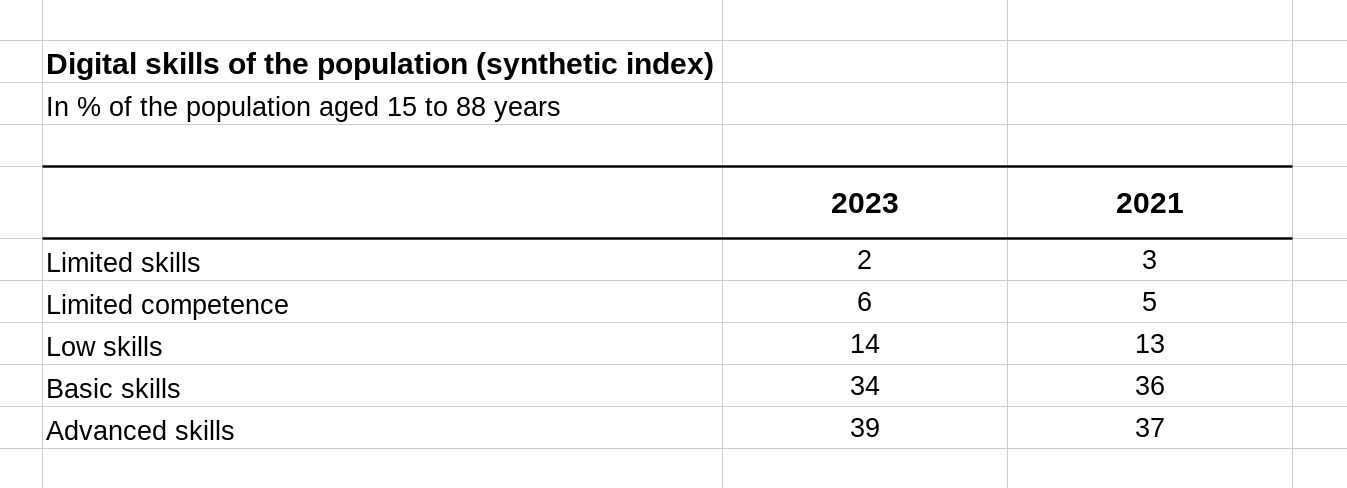
Thanks in part to the advocacy of Opendata.ch, a plurality of data spaces exist today to support the public weal – however, around 1/3 of Swiss (as per Federal statistics) do not have sufficient competencies to make use of these resources. Or perhaps it is 31%, if you look up the numbers in the just-released Mobiliar Digital Barometer. In any case, while digital literacy encompasses a range of topics of information access, we begin and end the conference today with a discussion of the challenges of data literacy.
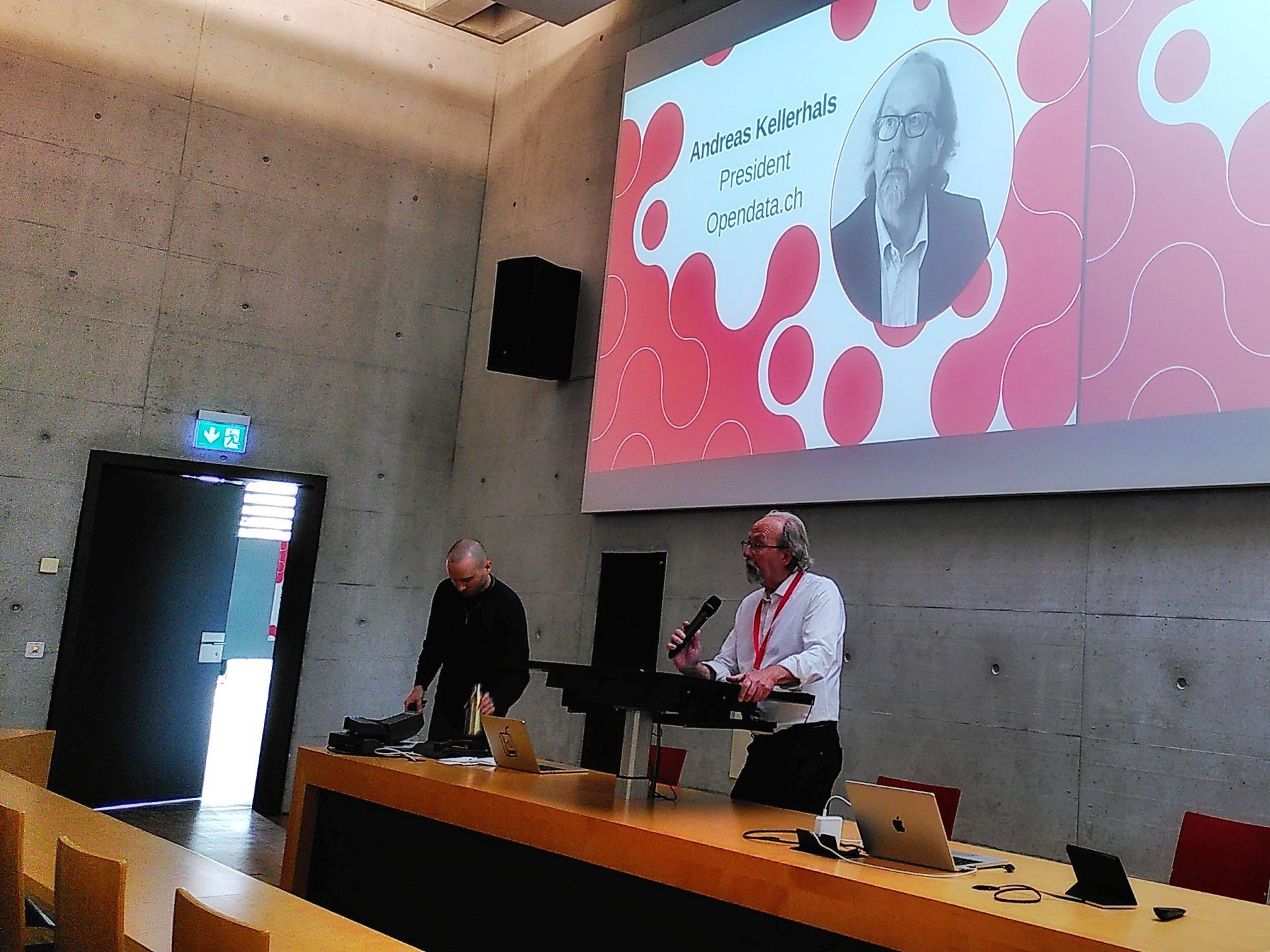
(With apologies for the poor audio quality, and other IT issues at the opening)
In the first presentation (slides are here, livestreamed from around 20:00), member of the National Council Gerhard Andrey gave a compelling plaidoyer for an "API-first" design, exposing machine-readable interface on every aspect of public (and, if I may add, why not private?) governance.
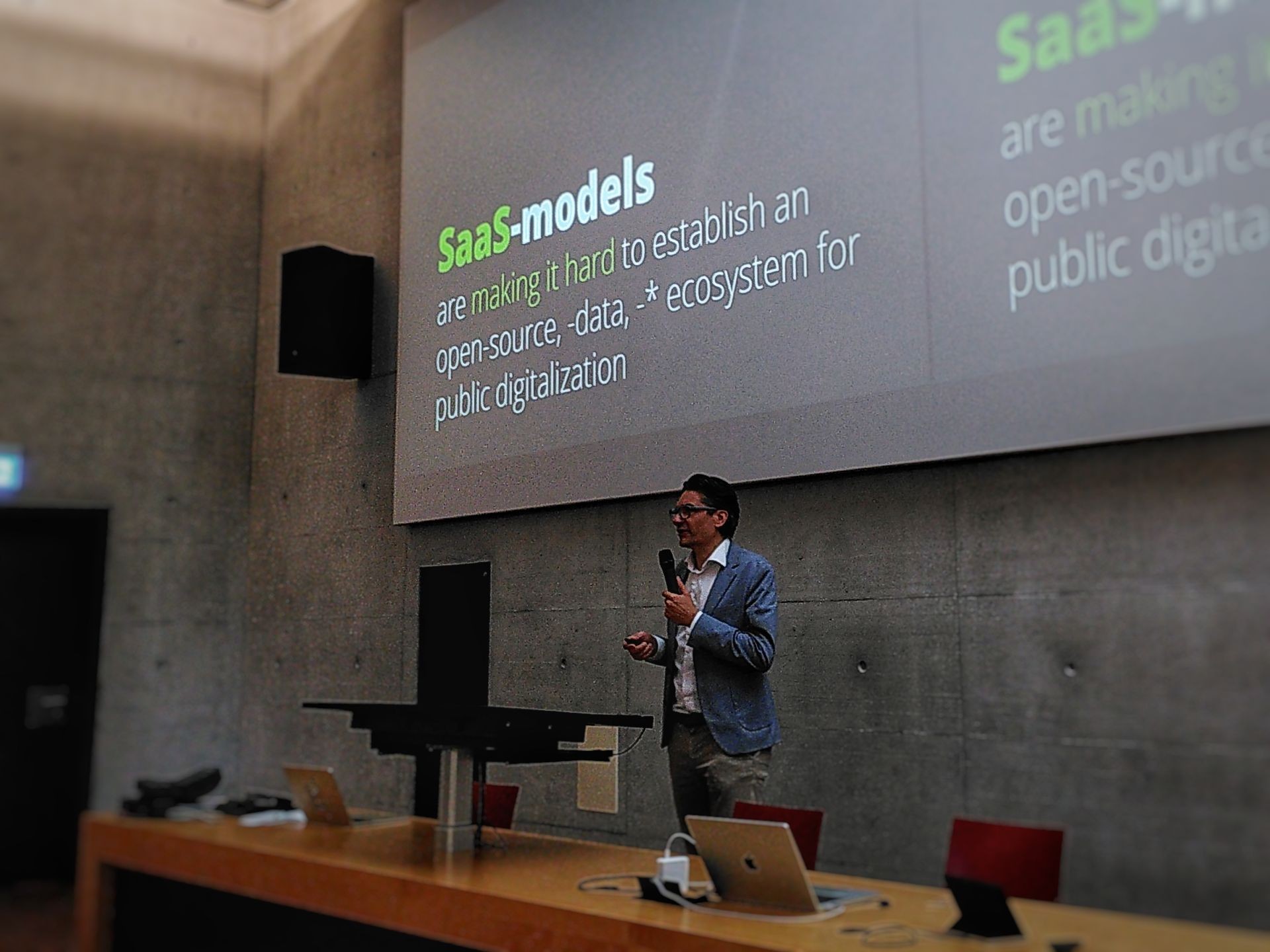
While we see glimpses of this within the administrations (swisstopo) and civil society like ours, it will take time (decades!) and cost resources to really become a Data Culture. In the Federal Policy we are working on concepts Sekundarnützung (secondary use) of data which are really useful to Common Good.
“My mission is open source, open data, open standards, open whatever you want ecosystem for policy in the administration”
Gerhard shared compelling examples that his company Liip has worked on: In Situ Fribourg and ZüriCityGPT, which are being replicated to other municipalities with reduced cost and effort, thanks to open source.

He then switched tracks to address the proverbial elephant in the room, the impact of A.I. on the economy, and on data policy.
"Producing data and using data is going to be for our digital sovereignty, but when we see the way the market is organized, it is heavily distorted. ... France, a country with around 70 million people, can create economic value for a whole year, and won't get to the value of the market capitalization of one single company [Microsoft]. At the end of the day, this is not just economic power; it is political and geopolitical power."
Gerhard Andrey mentioned a series of EU acts: the Artificial Intelligence Act, Data Act, European Chips Act — legislative directives that are only the beginning of the work that needs to happen for digital sovereignty on the continent. The suggestion was that we need a data equivalent of Airbus, that was created in the 1970s in response to the dominance of the aircraft industry by Boeing.
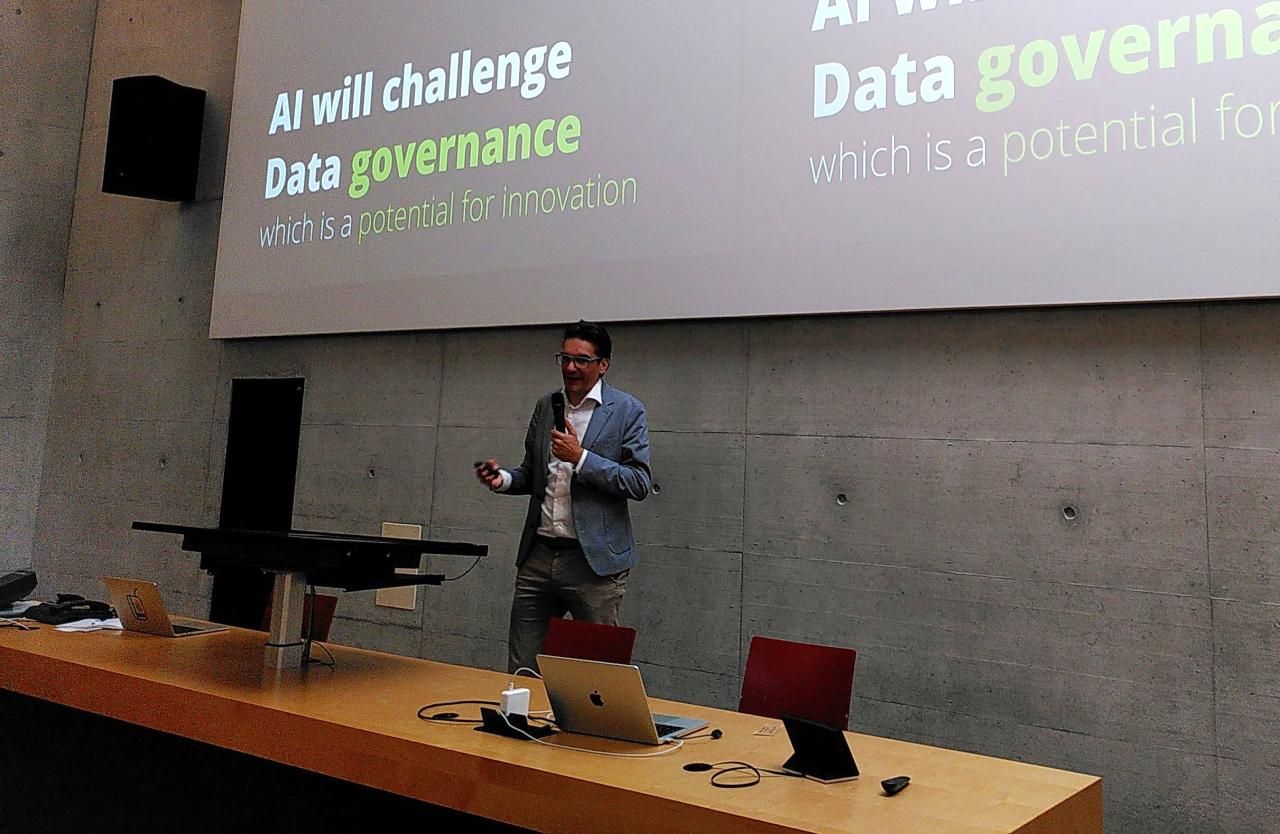
In Switzerland, open data has "gone mainstream", but Gerhard believes it will take more for open data to become culture. AI will challenge data governance heavily in the next few years. There is potential for regulation, how to find the good rules, but the economic power equation needs to be addressed, as it will be decisive for digital sovereignty.
"Europe needs to stand on it's own 'digital feet'"
There was some feedback on Mastodon to my posts, to the topic of the A.I. boom and economic justice, which I invite you to explore and add your thoughts to here:
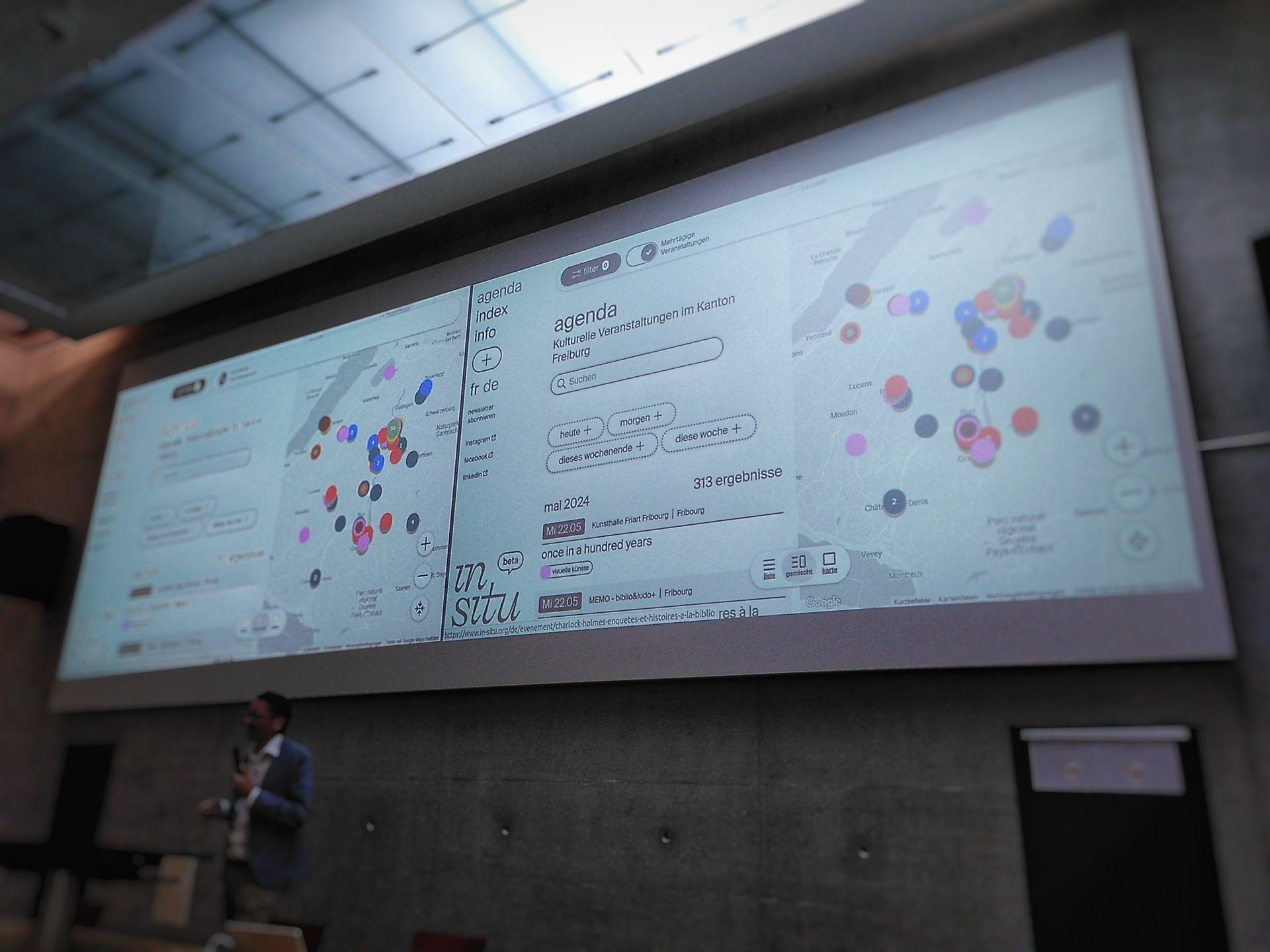
After the opening keynotes, the conference continued on several parallel tracks. I have made a few scattered notes on Mastodon, excerpted here. Some more details and links to the presenters can be found on the event page.
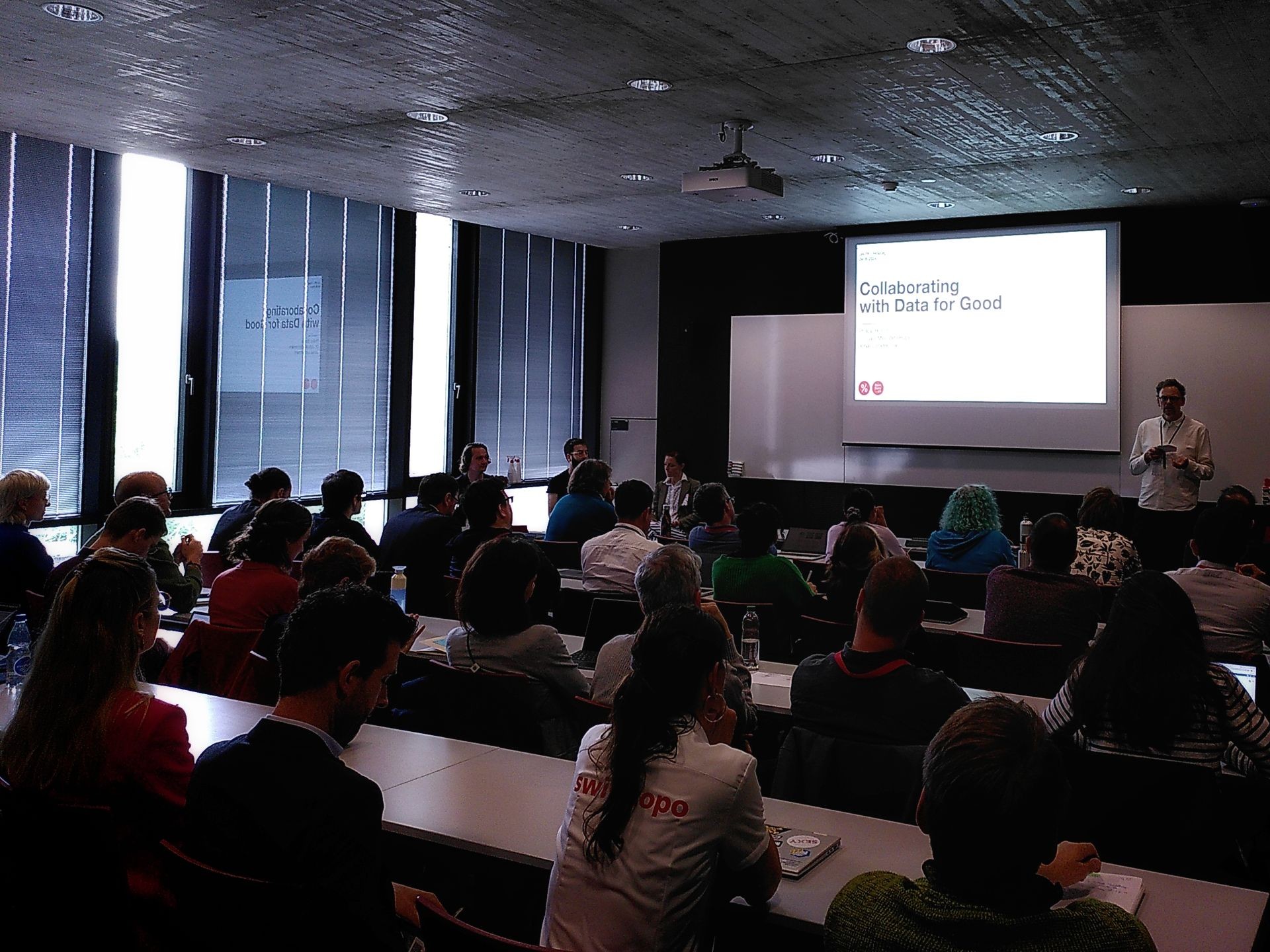
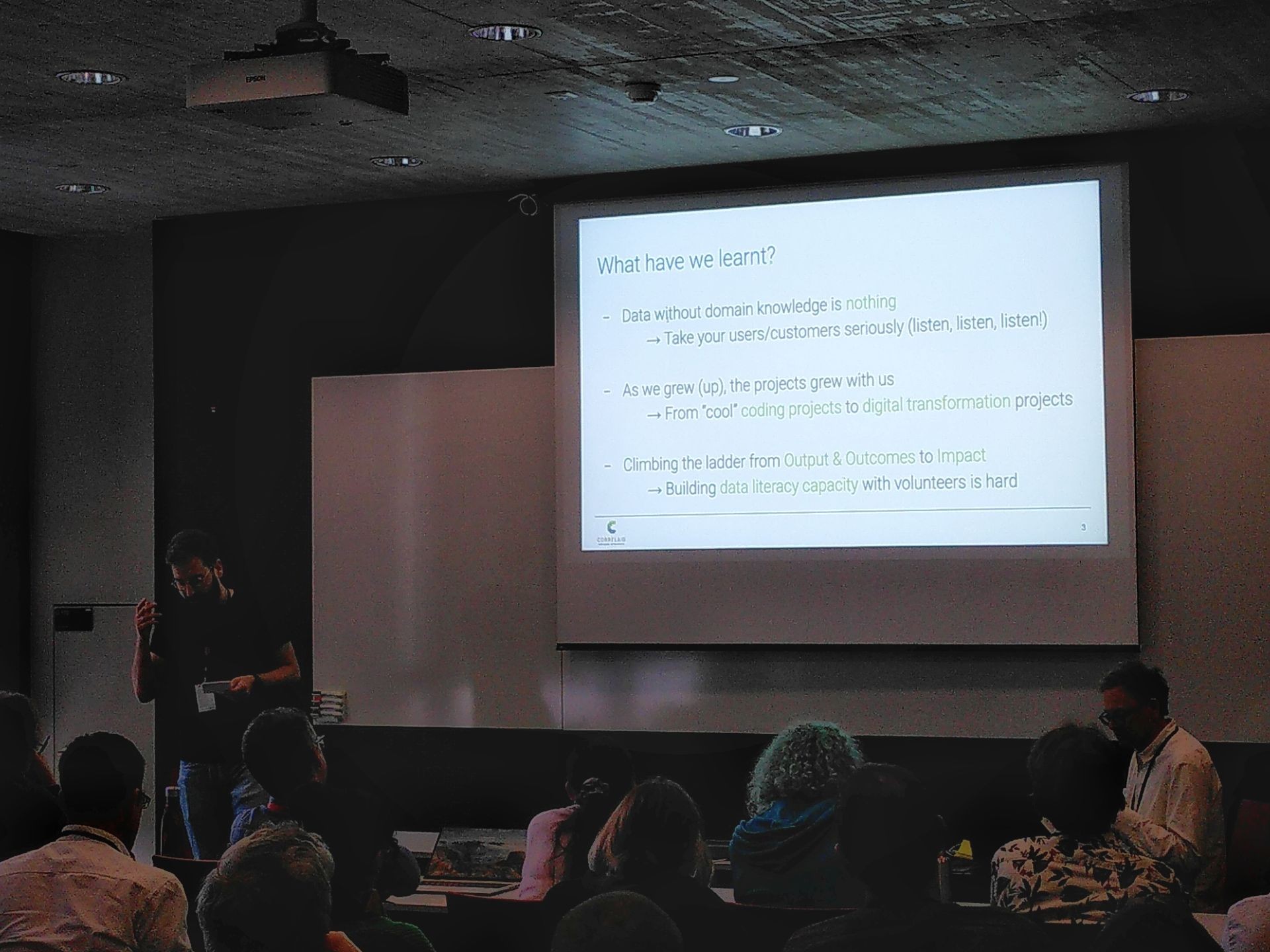

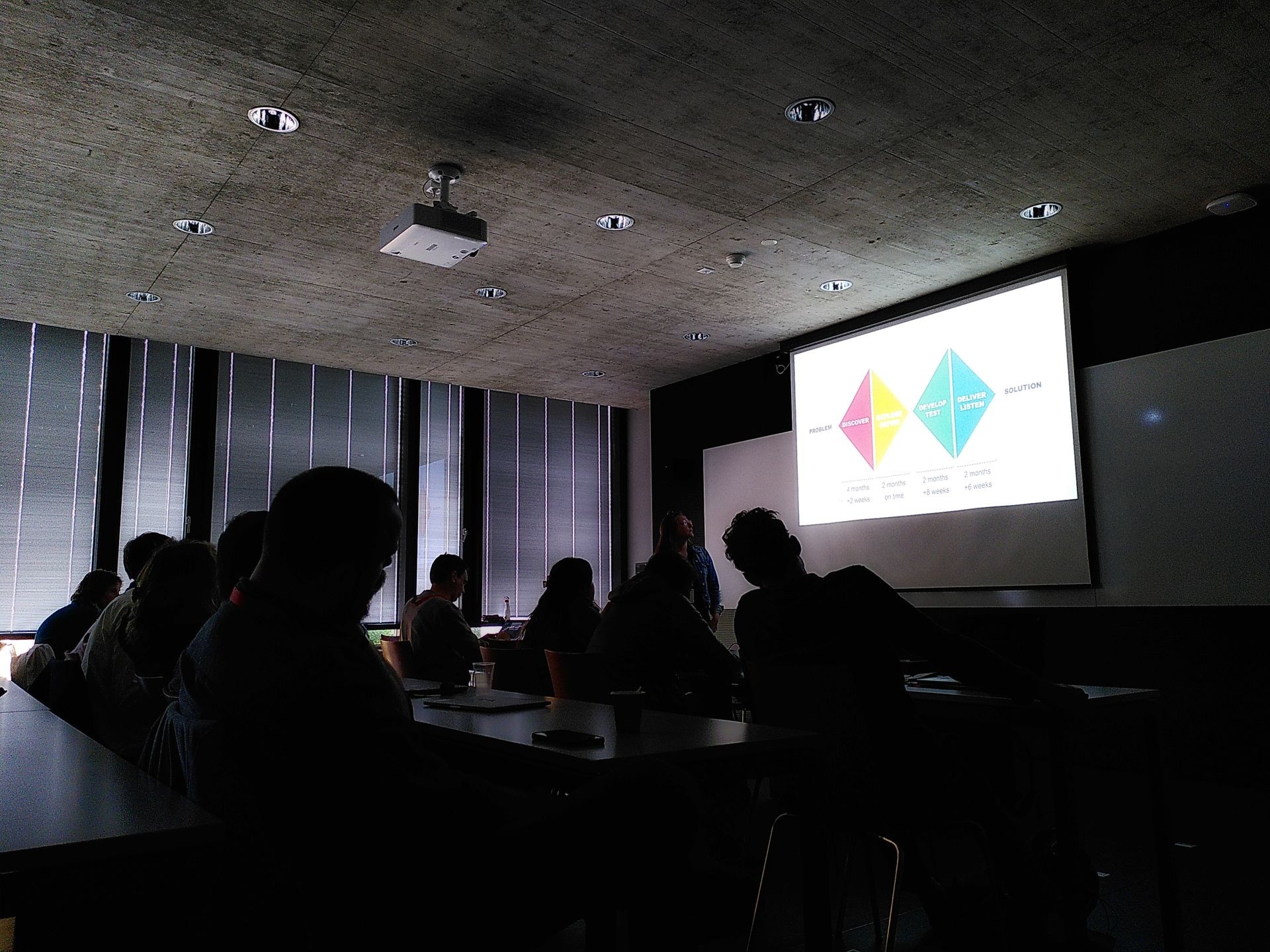
My contribution to the Forum was the Community Showcase, set up together with Albertina Luisier to highlight a handful of intriguing projects from our Hackdays and initiatives of the past year. We put the dozen projects up on posters throughout the foyer, hoping to spark conversations in the breaks. You can explore them at your leisure here:

Or explore the data on DataHub Cloud.
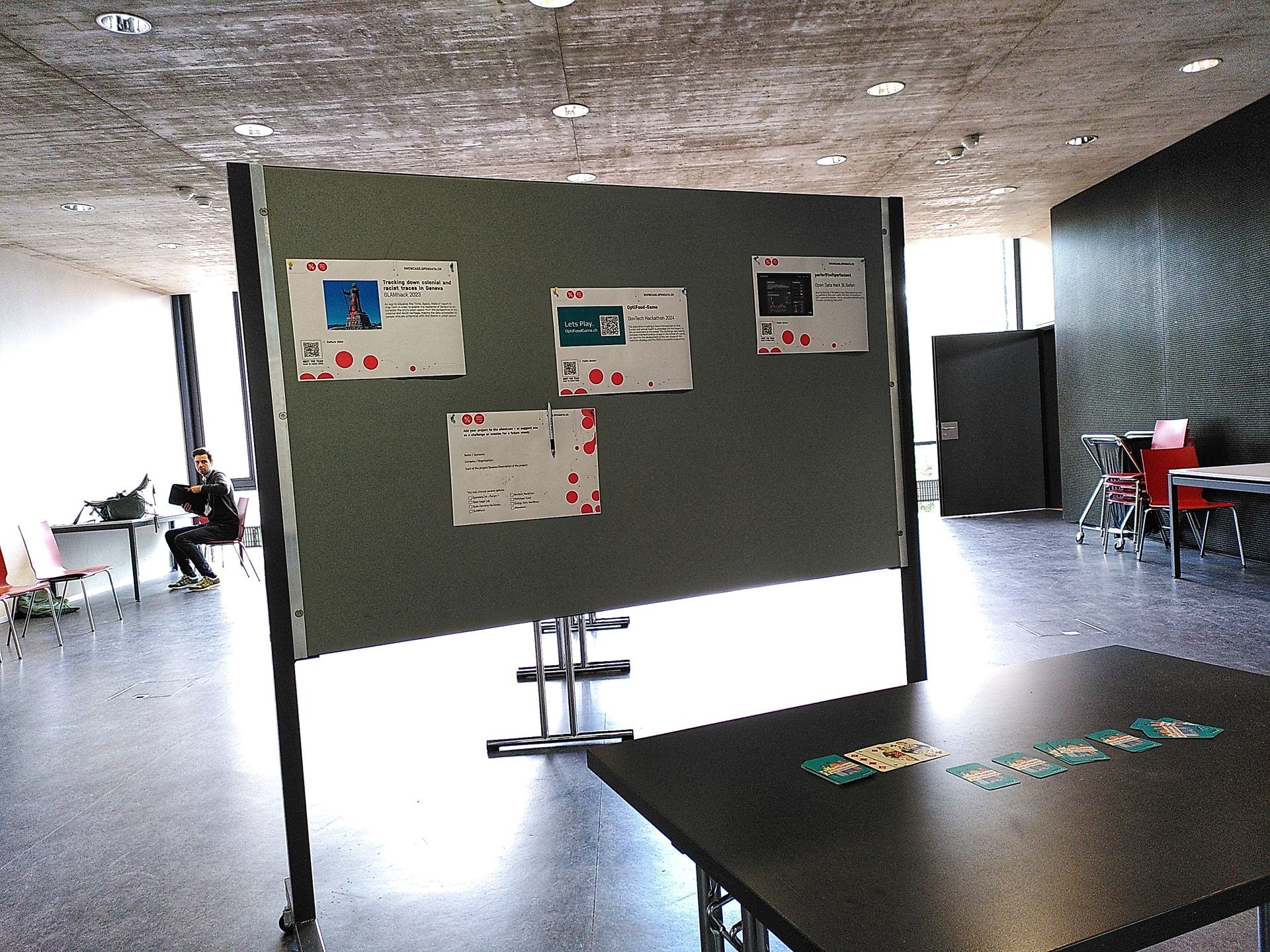
A couple were suggested by participants on location, as we encouraged visitors of the Forum to scribble down their own open data projects. This gave me space to also introduce a new initiative, that you'll be hearing more about on from me soon:
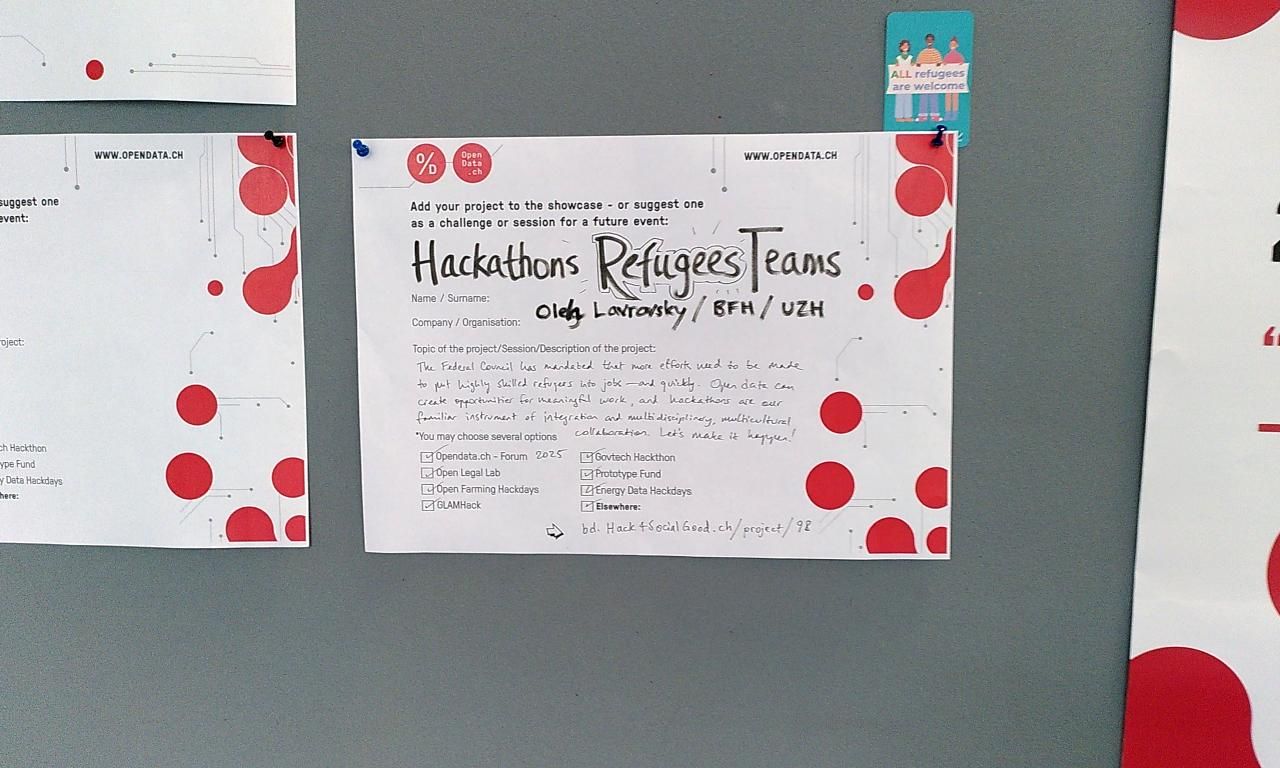
In the afternoon workshops, we got down to the more technical topics of modernizing the national data infrastructure we have been working on. Check out the presentation slides of the panel on the State of Open Government Data in Switzerland and beyond, which I've partially recorded here:
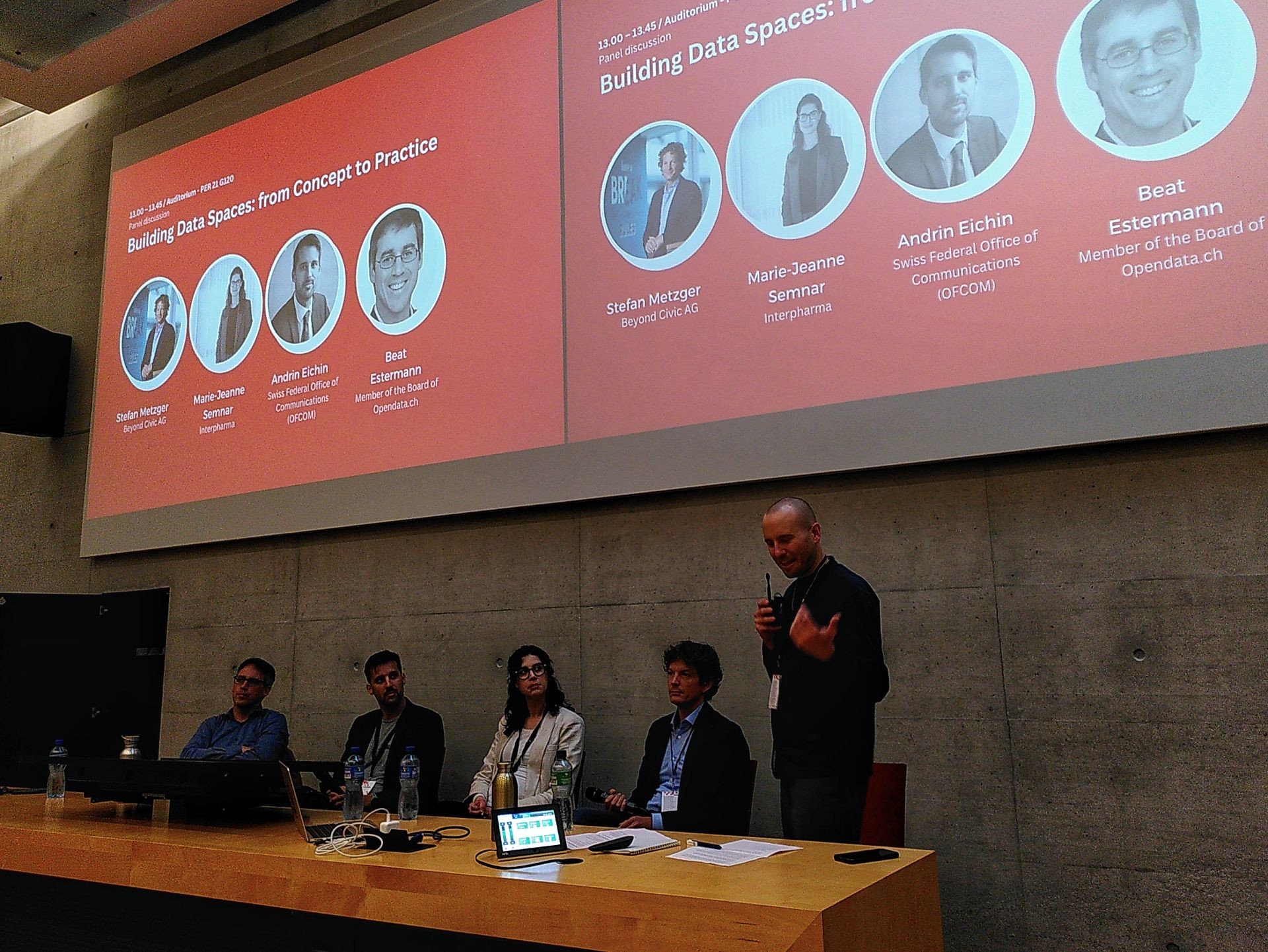
The excellent joint presentation of I14y, geocat.ch and opendata.swiss: Geographical and Open Data in Switzerland – Understanding the Flow of Metadata.
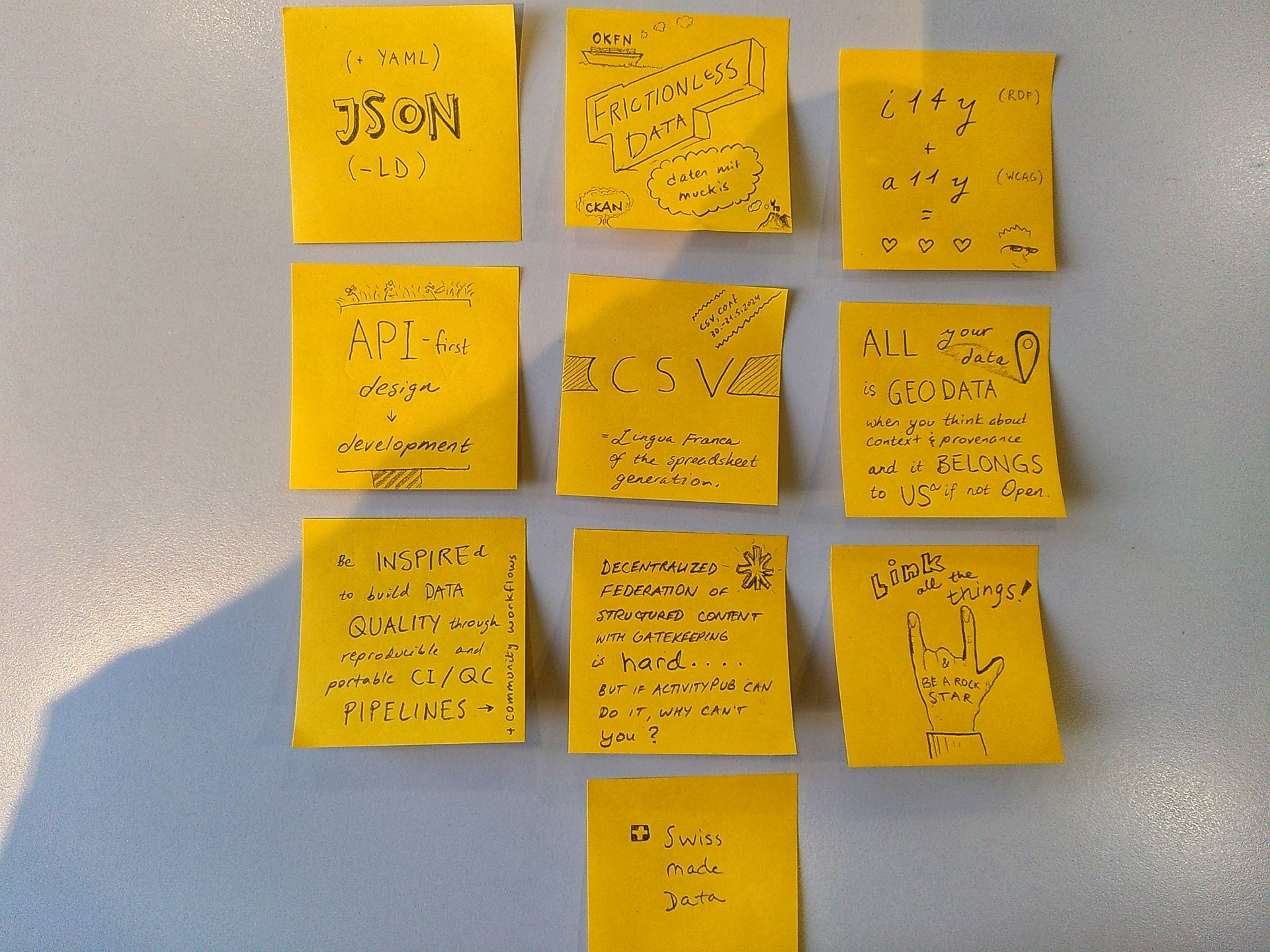
And insightful support from Monica Ray Scott and Michael Njogu of the International Committee of the Red Cross (ICRC) who shared a Design 4 Data template to help widen the reach of our projects.
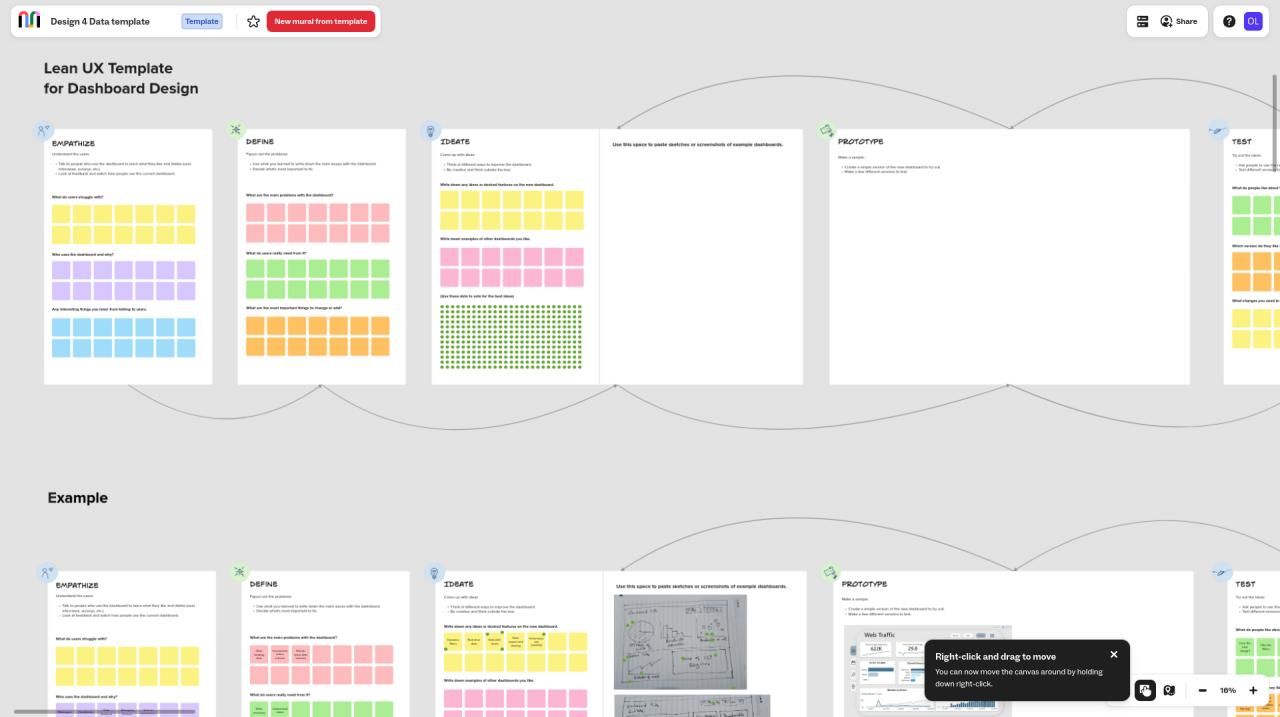
The final presentations from Corinna Grobe, Prof. Diego Kuonen and Scott Smith (Presentation) all deserve a deeper dive than I have time for right now. I can offer you my video recording of Prof. Kuonen's talk, again with apologies for the quality. I'll update this blog as soon the presenters, or someone else in the audience shares more insights.
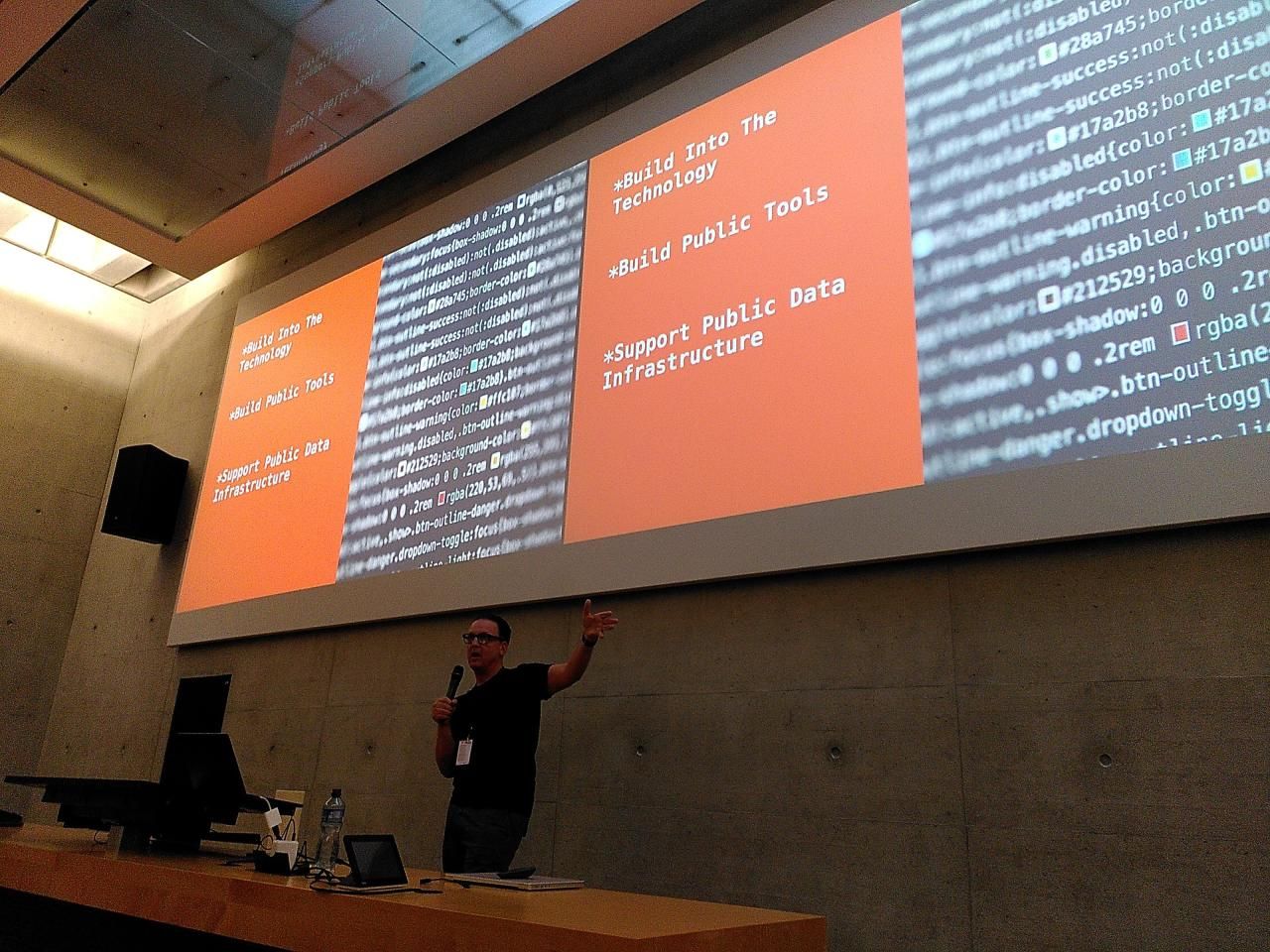
Speaking of going mainstream: while we were meeting in Fribourg, friends of mine were running a hackathon dedicated to arts & culture in Bern. Read up on this in my next blog post!
Thanks very much to the University for hosting us + to everyone involved <3





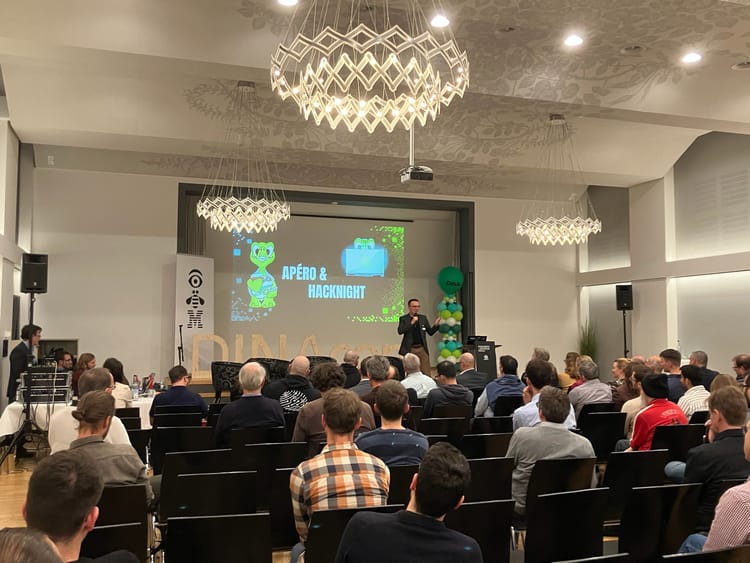
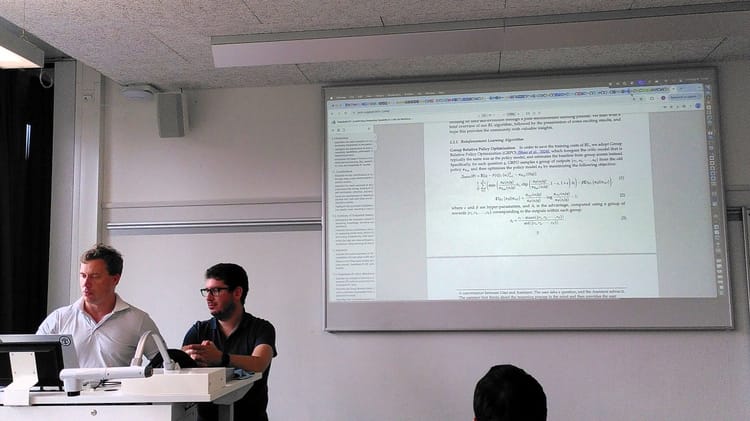
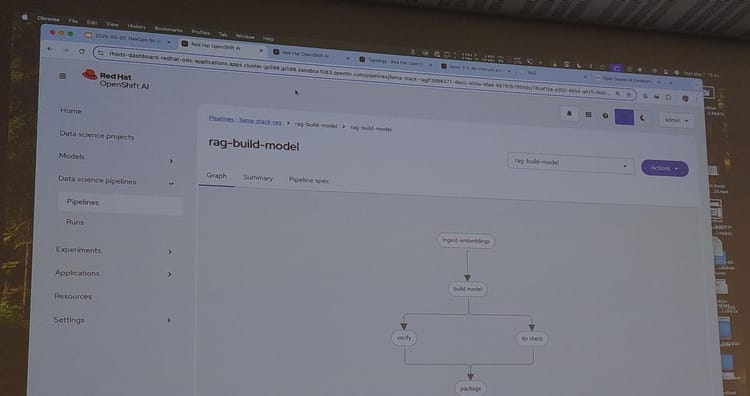

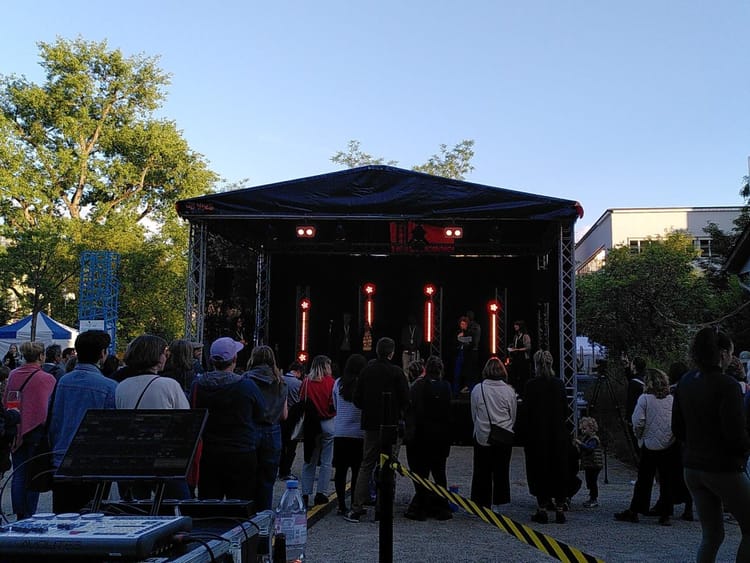
 The works on this blog are licensed under a Creative Commons Attribution 4.0 International License
The works on this blog are licensed under a Creative Commons Attribution 4.0 International License